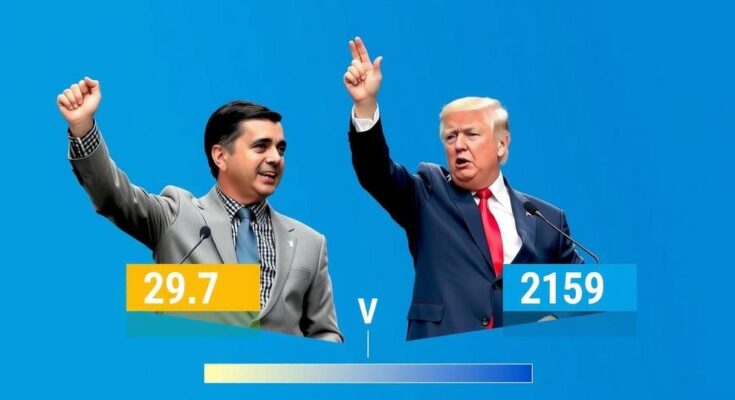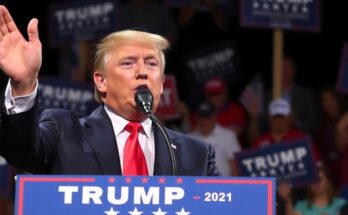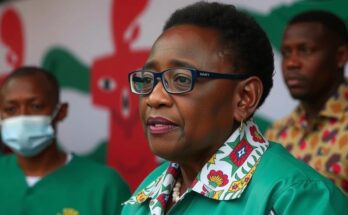Uruguay is set for a presidential runoff on Sunday, as Álvaro Delgado of the National Party and Yamandú Orsi of the Broad Front vie for the presidency. Following a first round where the Broad Front led with 44% to Delgado’s 27%, the election reflects significant voter indecision and a lack of distinctive campaigning on major issues. With concerns over crime and economic policy at the forefront, both candidates present contrasting plans for the future of Uruguay.
As Uruguay prepares to hold its presidential runoff election on Sunday, the political landscape has transformed into a highly competitive race. The incumbent National Party, represented by Álvaro Delgado, faces off against Yamandú Orsi from the left-leaning Broad Front in a contest precipitated by neither securing a decisive majority in last month’s polling. The elections have become emblematic of broader concerns, as voter dissatisfaction and low engagement are significant factors influencing this contentious race.
The first round of voting, held on October 27, saw the Broad Front garner 44% of the votes, while Delgado’s National Party secured only 27%. Notably, the coalition of conservative parties, including the Colorado Party, captured 20% collectively, providing Delgado a crucial advantage ahead of the runoff. The political climate reflects a severely divided Congress and fluctuating voter support, with polls indicating a near tie and nearly 10% of the electorate still undecided.
The candidates have struggled to excite their voter bases, as both campaigns have demonstrated a lack of significant differentiation on pressing issues like taxation and social policy, resulting in widespread voter apathy. Political analysts note that the absence of intense anti-establishment sentiment akin to movements seen in other countries has contributed to this atmosphere of uncertainty. Nicolás Saldías, a senior analyst for The Economist Intelligence Unit, articulates, “The question of whether Frente Amplio (the Broad Front) raises taxes is not an existential question. That doesn’t exist in Uruguay.”
Crime rates, however, have emerged as a critical concern for voters, with both candidates addressing public anxiety surrounding an uptick in violence. Delgado, aged 55, campaigns on a platform of continuity with current President Luis Lacalle Pou, pledging to uphold pro-business policies and a commitment to economic growth. Conversely, Orsi, aged 57, seeks to position himself as the successor to former President José Mujica, emphasizing his working-class roots and proposing tax reforms and social security adjustments.
While Delgado navigates a nation benefiting from favorable economic conditions and the allure of a business-friendly approach, Orsi aims to capture the progressive vote by appealing to Uruguay’s history of social reform. The outcome of this election reflects not just the competing visions for the country but also Uruguay’s democratic resilience amidst a backdrop of voter ambivalence. As underscored by Saldías, “This is a normal election, which is rare…indicative of Uruguay’s strength as a democracy.”
Uruguay’s political atmosphere has historically been characterized by more predictable electoral outcomes, yet the current presidential runoff reflects a significant shift in voter engagement and sentiment. This election cycle is framed within a context of economic recovery and social issues such as safety and equality, distinguishing it from prior elections which manifested clearer ideological divides. The candidates represent contrasting legacies and visions, providing voters with stark choices that are rooted in Uruguay’s commitment to democracy and progressive ideals.
As Uruguay approaches a pivotal moment in its democratic process, the outcomes of the presidential runoff between Álvaro Delgado and Yamandú Orsi will undoubtedly influence the nation’s trajectory. The dynamics of voter participation and the resonance of campaign messages indicate a critical juncture for the electorate, highlighting the complexity of contemporary political engagement in the country. The election underscores the importance of addressing public concerns while maintaining democratic integrity amidst evolving voter sentiments.
Original Source: www.clickondetroit.com




